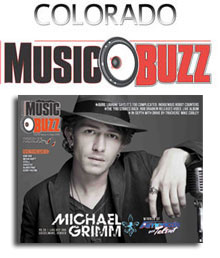A story of “Classickal” Music
“People respond strongly to music because it is so tied into memory and emotion.” ~Sarah Thompson, Music Therapist.
Everything in my life seems to morph into a song I know. I remember growing up, my mother would say, “If you memorized your homework the way you memorize music, you’d be a straight-A student!” I never became a straight-A student, but if a song comes on that I haven’t heard in more than 20 years, I have instant recall of the lyrics, as well as the memories surrounding that time.
I’d heard of music therapy before, Lord knows I’ve used it as therapy, but I had no idea to what degree it is being used for healing more than bad moods and broken hearts. This month, I had the pleasure of meeting the Classick family that is currently using music therapy to aid in the recovery of their patriarch, Nic, a traumatic brain injury survivor.
Nic is a businessman who traveled weekly from Denver to San Francisco for work. In 2007 while waiting in the airport, he had [what doctors believe was] a heart attack. Nic fell and hit his head on the marble floor. After two and a half weeks in a coma, doctors advised the Classick family to “pull the plug,” saying that he would never wake up, and if he did, he’d be a vegetable. The Classicks flew Nic home to Denver to decide what to do next.
Nic was in a coma for five months, and after four months in acute care, he gave everyone a sign that he was still fighting when he squeezed his daughter’s hand upon command. Craig Hospital periodically sent a liaison to the hospital to see if Nic was ready for rehab therapy. After four unsuccessful visits, he was finally approved to start rehab at Craig Hospital, (www.CraigHospital.org).
After seven brain surgeries, and having to go without a forehead bone for six months due to a sinus infection, this 6’ 6″ tree of a man is home now, with his incredibly supportive wife of 37 years, Christine. He completed rehab at Craig, and has gained back 90% of his long-term memory. He still has a difficult time getting messages from the brain to the body, and that’s where music therapy comes in.
Very rarely using a wheelchair at home, Nic prefers to use an “unstable” walker, forcing him to engage his balance. He also partakes in music therapy sessions with Sarah Thompson, a board-certified music therapist in Denver. “What we often see is that individuals respond to neurological music therapy in ways that they don’t respond to other therapies,” states Sarah. “The music offers multi-sensory feedback. You can see the instrument, hit it, feel it, and hear it. The feedback loop helps the brain to understand that it has reached its subject. Moving to the music, using his voice, or playing instruments are behavioral measurements used to gauge Nic’s progress. And walking is inherently rhythmic, so using a pulsing metronome, I can give him musical cues relative to his tempo.”
For TBI and stroke survivors, music can help them to remember certain things in steps, which they can’t remember independently; like the steps of getting dressed, etc., as well as taking their minds off the reps and pain to increase endurance.
Against all odds, Nic Classick continues to improve. Thank you so much to the Classick family for inviting me into a very personal part of their lives. And for more information on music therapy, please check www.RRMusicTherapy.com
Nic continues to improve. Against all odds.
Category: Exclusives







Thank you for such a beautiful article on my parents. They both truly are amazing people and their story is one to be shared.
Amazing! I still get better everyday, and I am more than a decade post accident. Here’s to not listening to the doctors!
So happy for you and your family! Thank you again for sharing your incredible journey with me, and our readers. The power of love, music, and perserverance wins again. Look forward to checking in with you sometime in the future!